Roofing Tips & Guides
Expert Roofing Advice for Charlotte Homeowners
Learn from Charlotte's trusted roofing experts. Tips on maintenance, repair, replacement, and protecting your home from the elements.
Learn from Charlotte's trusted roofing experts. Tips on maintenance, repair, replacement, and protecting your home from the elements.


Invest in Asphalt Roof Coating for Lasting Savings and Security
Is your roof showing signs of wear and tear? Asphalt roof coating offers a cost-effective solution for extending the life of your roof and protecting your property. This article will explore the benefits of asphalt roof coating, including its ability to save money on repairs and enhance your home’s security. You’ll learn about quality products, application techniques, and maintenance tips to maximize your investment. By the end, you’ll understand why asphalt roof coating is a smart choice for property owners seeking long-term savings and peace of mind.
Asphalt roof coating offers property owners significant benefits in terms of savings and protection. This section explores how the coating extends roof lifespan, evaluates its thermal efficiency, and assesses the cost savings associated with regular maintenance. Understanding these advantages helps homeowners make informed decisions about their roofing investments.
Asphalt roof coating acts as a protective barrier, shielding the roof from UV rays, moisture, and extreme temperatures. This protection prevents premature deterioration of roofing materials, effectively extending the roof’s lifespan. By applying a high-quality asphalt coating, property owners can add years to their roof’s functional life.
Regular application of asphalt roof coating helps maintain the roof’s structural integrity. It fills in small cracks and imperfections, preventing them from developing into larger issues that could compromise the roof’s performance. This proactive approach to roof maintenance significantly reduces the need for costly repairs or premature replacements.
The longevity-enhancing properties of asphalt roof coating translate into substantial long-term savings for property owners. By extending the roof’s lifespan, the coating delays the need for a full roof replacement, which is typically a significant expense. This cost-effective solution allows property owners to maximize their roofing investment over time:
| Benefit | Impact on Roof Lifespan | Cost Savings |
|---|---|---|
| UV Protection | Reduces material degradation | Delays replacement costs |
| Moisture Barrier | Prevents water damage | Minimizes repair expenses |
| Temperature Regulation | Reduces thermal stress | Lowers energy bills |
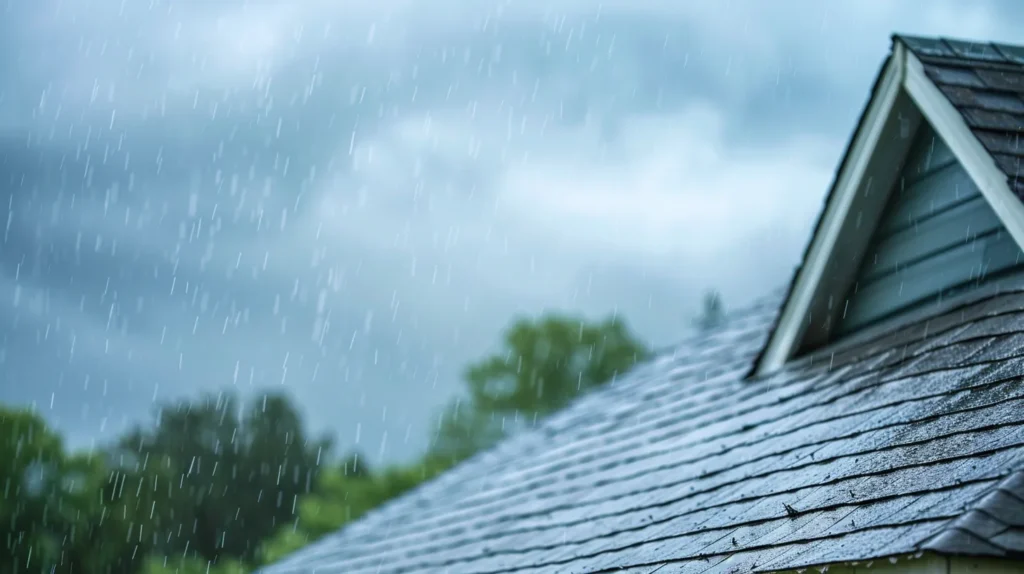
Evaluate the Thermal Efficiency of Roof Coatings
Asphalt roof coatings significantly enhance thermal efficiency by reflecting solar radiation and reducing heat absorption. This reflective property helps maintain cooler temperatures inside buildings, reducing the workload on air conditioning systems and lowering energy consumption.
The thermal efficiency of asphalt roof coatings varies depending on their composition and color. Light-colored coatings generally offer higher solar reflectance, while darker coatings provide better thermal emittance. Property owners should consider their specific climate and energy needs when selecting a coating:
| Coating Type | Solar Reflectance | Thermal Emittance |
|---|---|---|
| White Asphalt | High | Medium |
| Aluminum-Pigmented | Medium | Low |
| Dark Asphalt | Low | High |
By improving thermal efficiency, asphalt roof coatings contribute to substantial energy savings over time. Studies have shown that buildings with reflective roof coatings can reduce cooling costs by up to 20%, making them a cost-effective solution for property owners seeking to minimize energy expenses and improve overall building performance.
Regular maintenance of asphalt roof coatings yields significant cost savings for property owners. By addressing minor issues promptly, owners prevent them from escalating into major problems that require expensive repairs. This proactive approach reduces the frequency and severity of roof-related expenses over time.
Consistent upkeep of asphalt roof coatings extends the intervals between full replacements. Property owners who maintain their coatings can potentially double the lifespan of their roofs, postponing the substantial cost of a complete roof overhaul. This long-term strategy results in considerable financial benefits:
| Maintenance Action | Frequency | Cost Savings |
|---|---|---|
| Inspection | Annually | Prevents major damage |
| Cleaning | Bi-annually | Extends coating life |
| Recoating | Every 5-10 years | Delays full replacement |
The energy efficiency benefits of well-maintained asphalt roof coatings contribute to ongoing cost savings. By preserving the coating’s reflective properties, regular maintenance ensures continued reduction in cooling costs. Property owners can expect lower utility bills and improved indoor comfort throughout the roof’s extended lifespan.
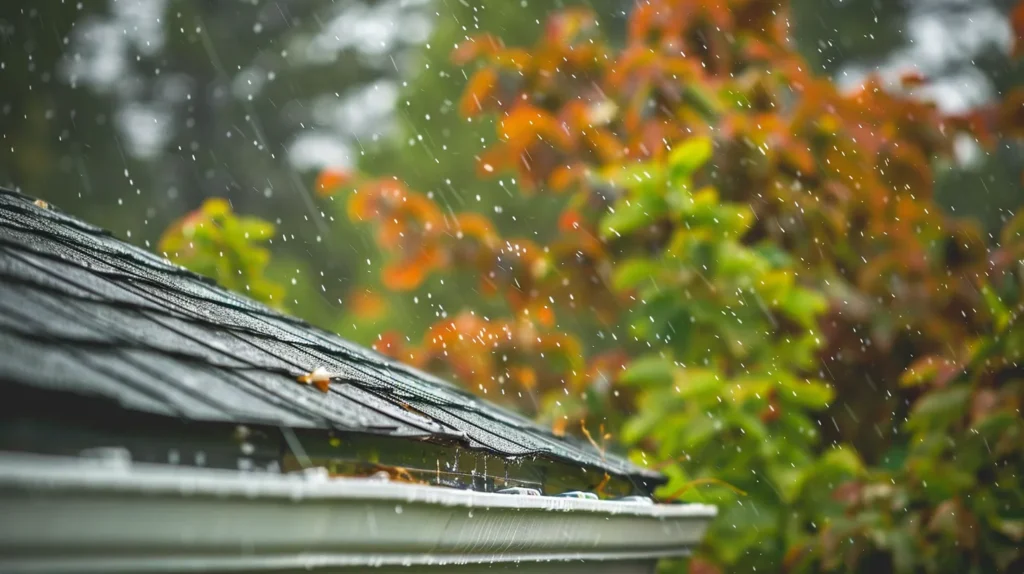
Selecting quality asphalt roof coating products is crucial for achieving lasting savings and security. This section compares different brands, explores reliable product reviews and testimonials, and highlights the importance of certifications and industry standards. By evaluating these factors, property owners can make informed decisions about their roofing investments, ensuring optimal performance and longevity.
Leading asphalt roof coating brands offer distinct formulations and performance characteristics. GacoRoof provides elastomeric coatings known for their durability and weather resistance. Henry Company’s asphalt coatings feature advanced UV protection and moisture-blocking properties. Kool Seal offers budget-friendly options with good reflective qualities.
Brand comparisons should focus on key factors such as adhesion strength, flexibility, and UV resistance. APOC’s asphalt coatings excel in crack-bridging ability, while Karnak Corporation’s products are recognized for their ease of application and long-term durability. Black Jack’s coatings are popular for their fast-drying properties and compatibility with various roofing materials.
Each brand’s product line caters to specific roofing needs. Tropical Roofing Products specializes in coatings for hot climates, offering superior heat reflection. Gardner-Gibson provides a range of asphalt coatings suitable for different roof types and climates. Property owners should evaluate these brands based on their specific roofing requirements and local weather conditions to ensure optimal performance and longevity.
Professional roofing associations and industry publications offer reliable reviews of asphalt roof coating products. These sources conduct rigorous testing and provide unbiased assessments of coating performance, durability, and value. Property owners can access these reviews to compare different brands and products objectively.
Customer testimonials from verified purchasers provide valuable insights into real-world product performance. Online platforms and roofing supply websites often feature user reviews that detail experiences with specific asphalt roof coatings. These testimonials help property owners understand how products perform in various climates and conditions.
Independent testing laboratories publish comprehensive reports on asphalt roof coating effectiveness. These reports evaluate factors such as weather resistance, adhesion strength, and longevity. Property owners can use this data to make informed decisions based on scientific evidence and industry-standard testing procedures.
Industry certifications validate the quality and performance of asphalt roof coating products. The Cool Roof Rating Council (CRRC) certifies coatings based on their solar reflectance and thermal emittance properties. Property owners should look for CRRC-rated products to ensure optimal energy efficiency and thermal performance.
ASTM International establishes rigorous standards for asphalt roof coatings. Products meeting ASTM D1227 standards demonstrate superior water resistance and durability. Owners seeking long-lasting protection should prioritize coatings that comply with these industry-recognized specifications.
Environmental certifications indicate eco-friendly formulations. Energy Star certified asphalt roof coatings meet strict energy efficiency guidelines set by the U.S. Environmental Protection Agency. These products offer property owners both energy savings and reduced environmental impact, making them a responsible choice for sustainable roofing solutions.
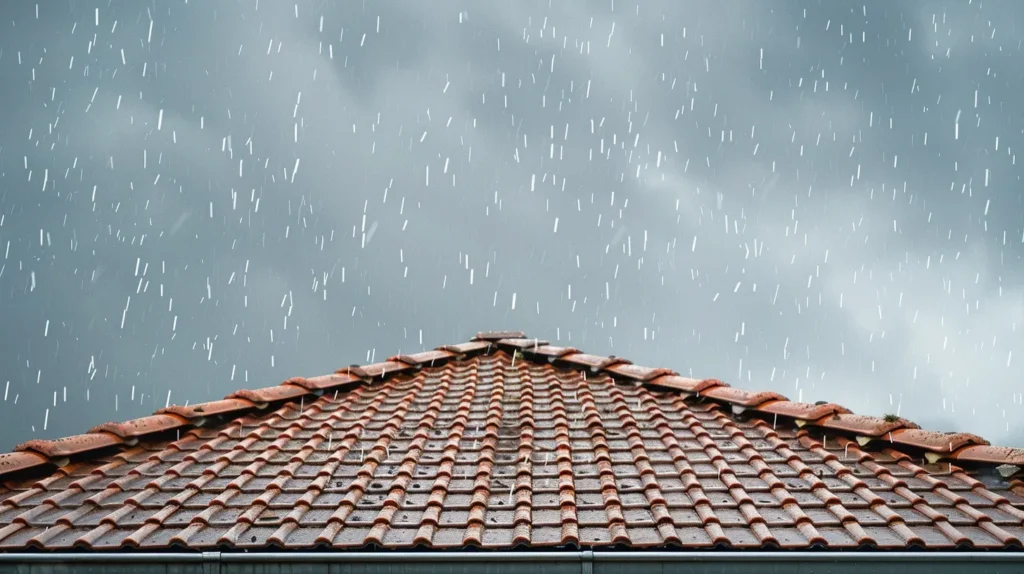
Proper application of asphalt roof coating is crucial for maximizing its benefits. This section outlines the essential steps: preparing the roof surface, following application instructions, and understanding drying conditions. By mastering these techniques, property owners can ensure optimal coating performance and longevity, leading to increased savings and improved roof protection.
Thorough roof inspection precedes asphalt coating application. Professionals examine the surface for damage, leaks, or structural issues that require repair. This step ensures the coating adheres properly and provides maximum protection.
Cleaning the roof surface is essential for optimal coating performance. Pressure washing removes dirt, debris, and loose materials. Technicians use appropriate cleaning solutions to eliminate mold, mildew, and other contaminants that could compromise the coating’s effectiveness.
Proper surface preparation involves addressing specific roofing materials. For metal roofs, rust treatment and priming are necessary. Concrete surfaces may require etching for better adhesion. Asphalt shingles need careful cleaning to avoid damage. The preparation process ensures a strong bond between the coating and the roof surface:
Asphalt roof coating application begins with mixing the product according to manufacturer instructions. Technicians use a power mixer to ensure uniform consistency and optimal performance. They apply the coating evenly using rollers, brushes, or sprayers, starting from the lowest point and working upward.
Multiple coats enhance protection and longevity. Professionals allow each layer to dry completely before applying the next, typically waiting 24 to 48 hours between coats. They pay special attention to seams, flashings, and penetrations, ensuring thorough coverage of these vulnerable areas.
Application techniques vary based on roof type and coating formulation. For sloped roofs, technicians work in small sections to prevent runoff. On flat roofs, they use squeegees to spread the coating evenly. Proper application thickness is crucial for achieving the desired performance and durability.
Asphalt roof coating requires specific drying conditions for optimal performance. Ideal temperatures range from 50°F to 90°F, with relative humidity below 85%. Technicians monitor weather forecasts to schedule applications during suitable periods, ensuring proper curing and adhesion.
Drying times vary based on coating thickness, temperature, and humidity. Most asphalt coatings become touch-dry within 4 to 8 hours but require 24 to 48 hours for full curing. Professionals advise property owners to restrict roof access during this period to prevent damage to the newly applied coating:
| Coating Type | Touch-Dry Time | Full Cure Time |
|---|---|---|
| Standard Asphalt | 4-6 hours | 24-36 hours |
| Rubberized Asphalt | 6-8 hours | 36-48 hours |
| Fiber-Reinforced | 8-10 hours | 48-72 hours |
Proper ventilation accelerates drying and reduces odors associated with asphalt coatings. Technicians open windows and use fans to promote air circulation, especially in enclosed spaces. They also protect surrounding areas from overspray and ensure adequate safety measures are in place throughout the drying process.
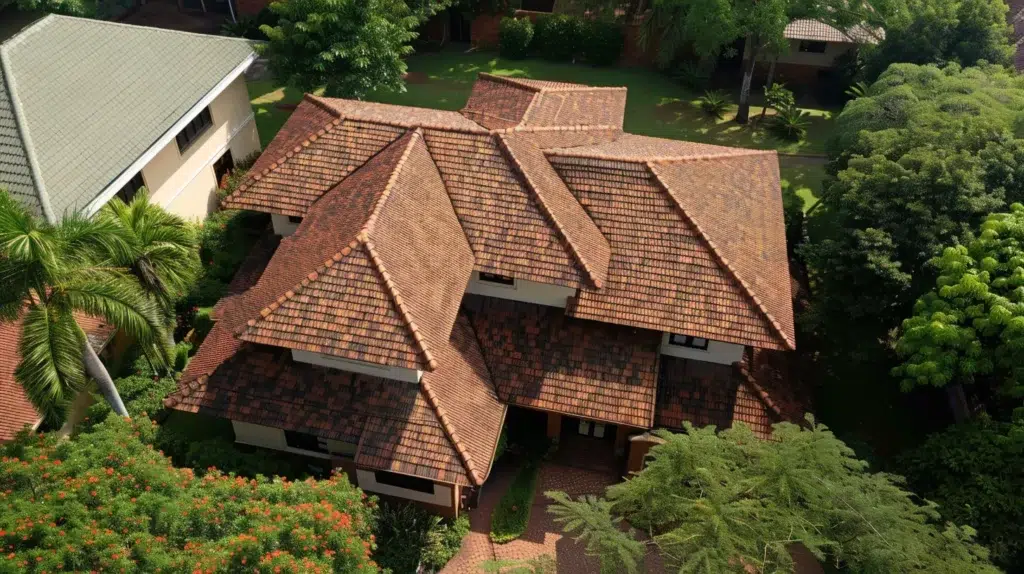
Maintaining asphalt roof coatings is crucial for maximizing their benefits. Property owners should schedule regular inspections to ensure roof integrity, clean surfaces to prevent damage, and promptly address worn or damaged areas. These practices help extend the coating’s lifespan, enhance its protective qualities, and maintain energy efficiency, ultimately leading to long-term savings and improved roof security.
Property owners should conduct biannual inspections of their asphalt roof coatings to maintain optimal performance. These inspections allow for early detection of potential issues such as cracks, blisters, or areas of wear. Professional roofers can assess the coating’s condition and recommend necessary maintenance or repairs.
During inspections, experts examine the entire roof surface, paying special attention to vulnerable areas like seams, flashings, and penetrations. They check for signs of coating deterioration, such as chalking or loss of reflectivity. This thorough assessment helps prevent minor problems from escalating into costly repairs.
Regular inspections also provide an opportunity to evaluate the roof’s overall structural integrity. Professionals can identify underlying issues that may affect the coating’s performance, such as poor drainage or substrate damage. By addressing these concerns promptly, property owners extend the lifespan of both the coating and the roof itself.

Regular cleaning of asphalt roof coatings prevents the accumulation of debris and contaminants that can degrade the coating’s performance. Property owners should remove leaves, branches, and other organic matter to avoid moisture retention and potential mold growth. Gentle sweeping or low-pressure washing effectively removes surface dirt without damaging the coating.
Mold and algae growth on asphalt roof coatings can compromise their reflective properties and overall effectiveness. Professional cleaners use specialized solutions to eliminate these organisms without harming the coating. Proper cleaning techniques preserve the coating’s integrity while maintaining its protective and energy-efficient qualities.
Chemical pollutants and environmental contaminants can accelerate the deterioration of asphalt roof coatings. Property owners in industrial areas or regions with high air pollution should schedule more frequent cleanings to neutralize these harmful substances. Prompt removal of bird droppings, tree sap, and other corrosive materials prevents long-term damage to the coating.
Property owners should address worn or damaged areas in asphalt roof coatings promptly to prevent further deterioration. Regular inspections help identify small issues such as cracks, blisters, or peeling, which can be easily repaired with touch-up applications. Timely intervention preserves the coating’s integrity and extends its protective capabilities.
Professional roofers use compatible materials for touch-up repairs, ensuring seamless integration with the existing coating. They clean and prepare the affected area before applying the repair product, following manufacturer guidelines for optimal adhesion and performance. This targeted approach maintains the roof’s overall protection while minimizing repair costs.
Touch-up repairs also help maintain the energy efficiency of asphalt roof coatings. By addressing damaged areas quickly, property owners preserve the coating’s reflective properties and thermal performance. This proactive maintenance strategy ensures continued energy savings and comfort benefits throughout the coating’s lifespan.
Asphalt roof coatings offer environmental benefits beyond their protective qualities. This section examines eco-friendly coating options, explores the recyclability of roofing materials, and highlights the energy-saving advantages of reflective coatings. Understanding these aspects helps property owners make environmentally responsible choices while securing long-term savings and roof protection.
Eco-friendly asphalt roof coatings offer property owners environmentally responsible options without compromising performance. These coatings incorporate low-VOC formulations, reducing harmful emissions during application and curing. Manufacturers have developed water-based asphalt coatings that minimize environmental impact while providing excellent protection against UV rays and moisture.
Biodegradable additives in some asphalt coatings enhance their eco-friendly profile. These additives break down naturally over time, reducing the long-term environmental impact of roofing materials. Property owners can choose coatings with recycled content, supporting sustainable manufacturing practices and reducing waste in the construction industry.
Cool roof technologies integrated into asphalt coatings contribute to energy efficiency and urban heat island reduction. These coatings reflect solar radiation, lowering roof surface temperatures and reducing cooling demands. By selecting eco-friendly asphalt coatings, property owners can achieve lasting savings while supporting environmental conservation efforts:
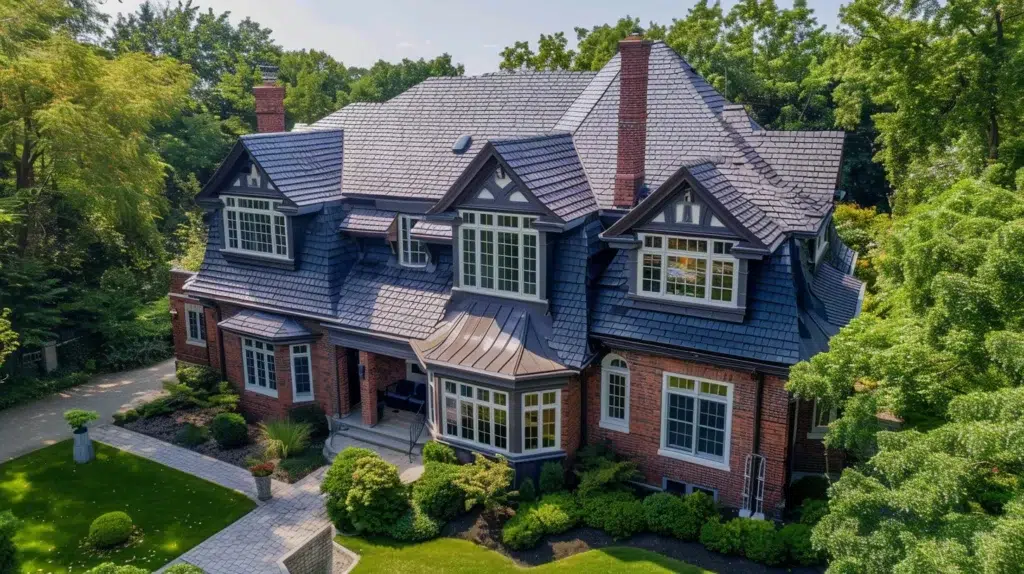
Asphalt roof coatings contribute to sustainable roofing practices through their recyclability. At the end of their service life, these coatings can be removed and processed for reuse in new roofing materials or road construction. This recycling process reduces landfill waste and conserves natural resources.
The recycling potential of asphalt roof coatings varies depending on their composition. Some manufacturers incorporate recycled materials into their coating formulations, creating a closed-loop system that further enhances sustainability. Property owners can inquire about the recycled content and recyclability of specific coatings when making purchasing decisions.
Proper disposal and recycling of asphalt roof coatings require specialized facilities. Many roofing contractors partner with recycling centers to ensure responsible handling of used materials. By choosing recyclable coatings and working with environmentally conscious contractors, property owners support the circular economy in the roofing industry.
Reflective asphalt roof coatings significantly reduce solar heat absorption, lowering indoor temperatures and decreasing cooling costs. These coatings reflect up to 80% of solar radiation, preventing heat transfer into the building structure. Property owners can experience energy savings of 15-35% on cooling expenses by applying reflective asphalt coatings.
The energy-saving benefits of reflective coatings extend beyond individual buildings to urban environments. By reducing the urban heat island effect, these coatings contribute to lower ambient temperatures in densely populated areas. This widespread adoption of reflective roofing can lead to reduced energy consumption and improved air quality on a community scale.
Reflective asphalt coatings maintain their energy-saving properties over time with proper maintenance. Regular cleaning and reapplication preserve the coating’s reflectivity, ensuring consistent performance throughout its lifespan. Property owners can maximize long-term energy savings by following manufacturer-recommended maintenance schedules and promptly addressing any damage to the reflective surface.
Investing in asphalt roof coating yields significant long-term returns for property owners. This section examines the financial benefits, including energy bill savings through improved insulation, increased property value from roof enhancements, and cost-effectiveness compared to full roof replacement. By analyzing these factors, owners can make informed decisions about their roofing investments and maximize long-term savings.
Asphalt roof coatings enhance insulation properties, leading to substantial energy bill savings. Property owners can expect a reduction in cooling costs of up to 30% during summer months due to improved thermal efficiency. This insulation benefit extends to winter, reducing heat loss and lowering heating expenses.
The energy savings from asphalt roof coatings compound over time. A typical residential property may save $200-$500 annually on energy bills, depending on climate and building size. Commercial buildings often see even greater savings, with some large structures reporting reductions of $5,000 or more per year in energy costs.
To calculate potential savings, property owners should compare pre-coating and post-coating energy consumption. Utility companies often provide tools to analyze usage patterns and estimate savings. Energy audits conducted before and after coating application offer precise measurements of insulation benefits and resulting cost reductions.
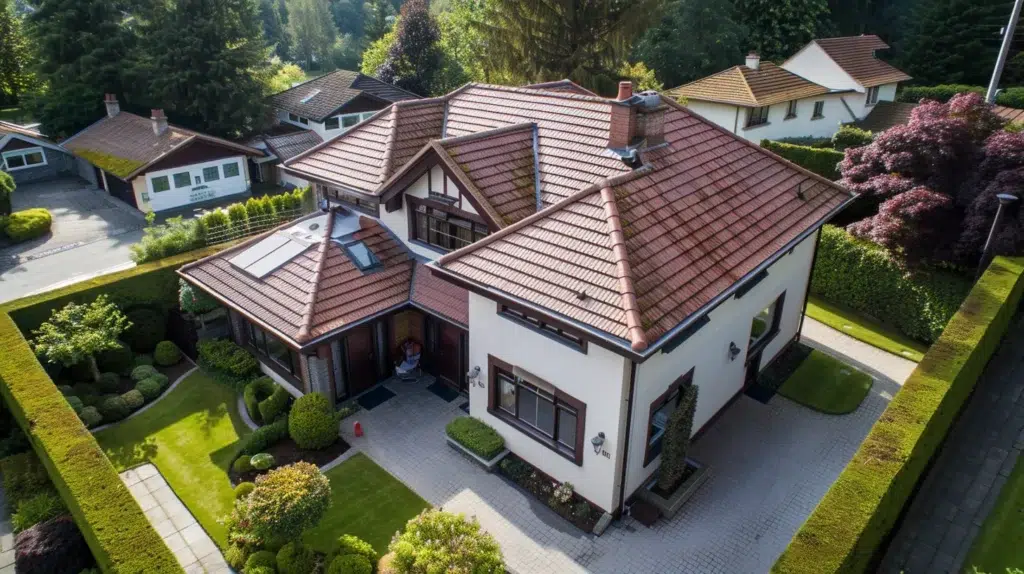
Asphalt roof coatings significantly enhance property values by improving curb appeal and structural integrity. Real estate experts estimate that a well-maintained roof can increase a property’s value by 15-40%. This boost in value stems from the improved aesthetics, energy efficiency, and perceived longevity of the roofing system.
The return on investment for asphalt roof coatings typically ranges from 60-70% of the initial cost. Property owners who invest in high-quality coatings and professional application can recoup a substantial portion of their expenses through increased property valuation. This improvement in value often exceeds the cost of the coating itself, making it a financially sound decision for long-term property ownership.
Insurance companies recognize the protective benefits of asphalt roof coatings, often offering reduced premiums for properties with well-maintained roofs. These savings, combined with the increased property value, contribute to the overall financial advantage of investing in roof improvements. Property owners should document all roof coating applications and maintenance to maximize these benefits when selling or refinancing their properties.
Asphalt roof coatings extend the lifespan of roofs by 10-15 years, significantly delaying the need for full replacement. This extended life cycle results in substantial cost savings, as property owners can postpone the major expense of roof replacement. The average cost of applying an asphalt coating ranges from $0.50 to $3 per square foot, compared to $7 to $12 per square foot for a complete roof replacement.
The cost-effectiveness of asphalt roof coatings becomes evident when comparing long-term expenses. A typical asphalt shingle roof lasts 20-30 years, while a coated roof can last up to 40-45 years with proper maintenance. This extended lifespan translates to a 30-50% reduction in lifetime roofing costs for property owners who invest in regular coating applications.
Property owners should consider the frequency of coating reapplication when estimating long-term costs. Most asphalt coatings require reapplication every 5-10 years, depending on climate and wear. Even with periodic recoating, the cumulative cost remains significantly lower than premature roof replacement. This cost-effective approach allows property owners to allocate resources to other important maintenance or improvement projects.
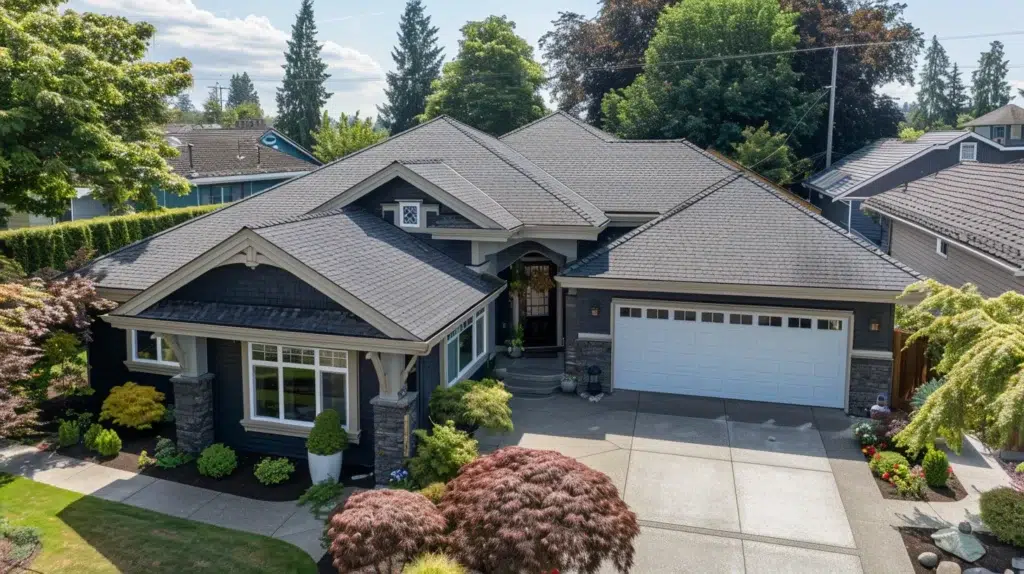
Asphalt roof coatings typically last between 5 to 10 years, depending on various factors such as climate conditions, proper application, and maintenance. The quality of the coating product, thickness of application, and the roof’s overall condition before coating also play significant roles in determining its longevity. Regular inspections and maintenance can help extend the life of asphalt roof coatings. Addressing any issues promptly, such as cracks or peeling, can prevent further damage and prolong the coating’s effectiveness. In some cases, with proper care, high-quality asphalt roof coatings may last up to 15 years.
While applying asphalt roof coating yourself is possible, it requires proper preparation, tools, and safety precautions. Homeowners with DIY experience and the right equipment can tackle this project, but it’s crucial to understand the process and potential risks involved. For most property owners, hiring professional roofers is recommended. Experts have the necessary skills, equipment, and knowledge to ensure proper application, maximize the coating’s effectiveness, and maintain warranty coverage. They can also identify and address underlying roof issues before applying the coating.
Asphalt roof coating provides excellent waterproofing protection, extending the life of your roof by preventing leaks and moisture damage. It also reflects sunlight, reducing heat absorption and lowering cooling costs. This coating is cost-effective, as it’s less expensive than a full roof replacement. The application of asphalt roof coating is relatively simple and can be done quickly, minimizing disruption to your property. It also helps maintain the structural integrity of your roof by protecting it from UV rays, extreme weather conditions, and thermal shock, which can cause premature aging and deterioration.
Asphalt roof coating typically needs reapplication every 5 to 10 years, depending on various factors such as climate, weather exposure, and the quality of the initial application. Regular inspections can help determine when recoating is necessary, as signs of wear or deterioration indicate it’s time for a fresh layer. To maintain optimal protection, property owners should schedule professional roof inspections annually. These inspections can identify early signs of coating breakdown, allowing for timely reapplication before significant damage occurs. Adhering to manufacturer recommendations and consulting with roofing experts can help establish an appropriate recoating schedule for specific circumstances.
Asphalt roof coating primarily works on flat or low-slope roofs with materials like built-up roofing, modified bitumen, and single-ply membranes. It provides UV protection, waterproofing, and can extend the life of these roof types. However, it’s not typically recommended for steep-slope roofs or those with shingles. For other roof types, such as metal, tile, or concrete, specialized coatings designed for those specific materials are more appropriate. It’s crucial to consult with a roofing professional to determine the best coating solution for your particular roof type and condition.
Investing in asphalt roof coating offers property owners significant long-term benefits, including extended roof lifespan, improved energy efficiency, and increased property value. By protecting against UV rays, moisture, and extreme temperatures, these coatings enhance roof durability and performance, resulting in substantial cost savings over time. Regular maintenance and proper application of eco-friendly coating options contribute to environmental sustainability while ensuring optimal protection and energy-saving benefits. Ultimately, asphalt roof coatings provide a cost-effective solution for property owners seeking to maximize their roofing investment and secure lasting savings and security.
Best Roofing Now
Charlotte's trusted roofing experts since 2019
Based on this article, you may be interested in these services.
Get a free roof inspection and honest assessment from Charlotte's most trusted roofing company.
